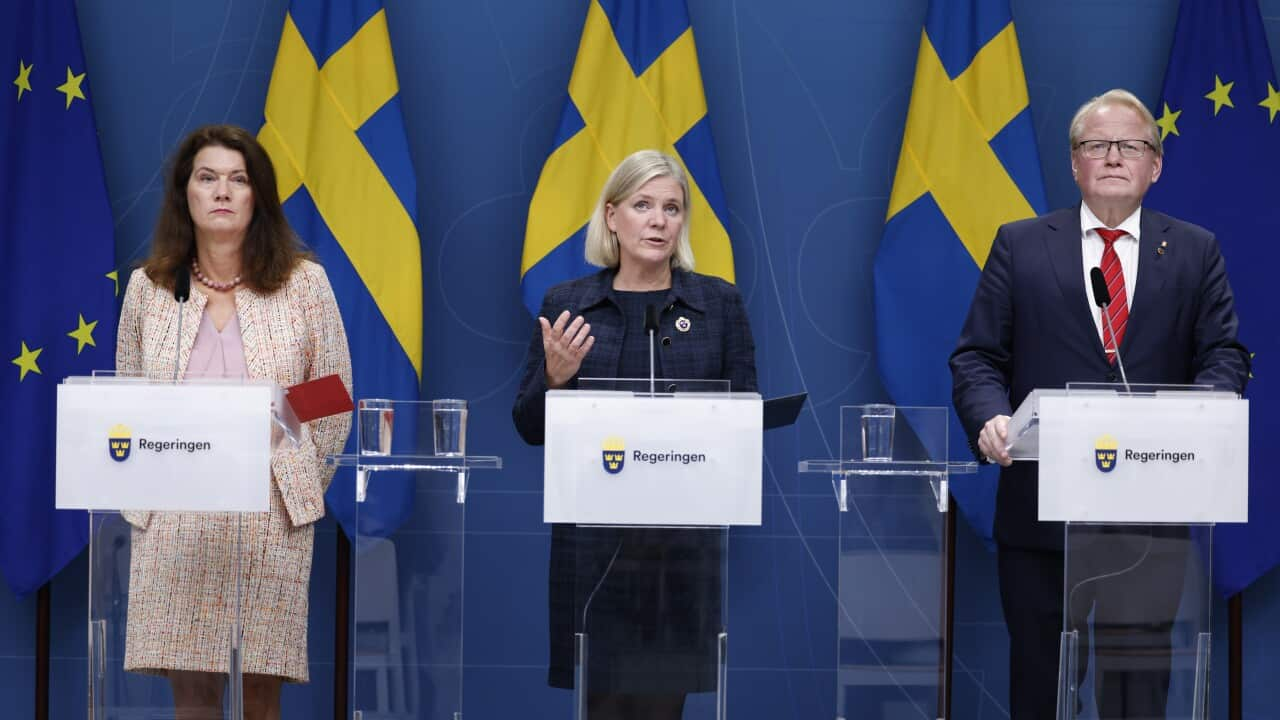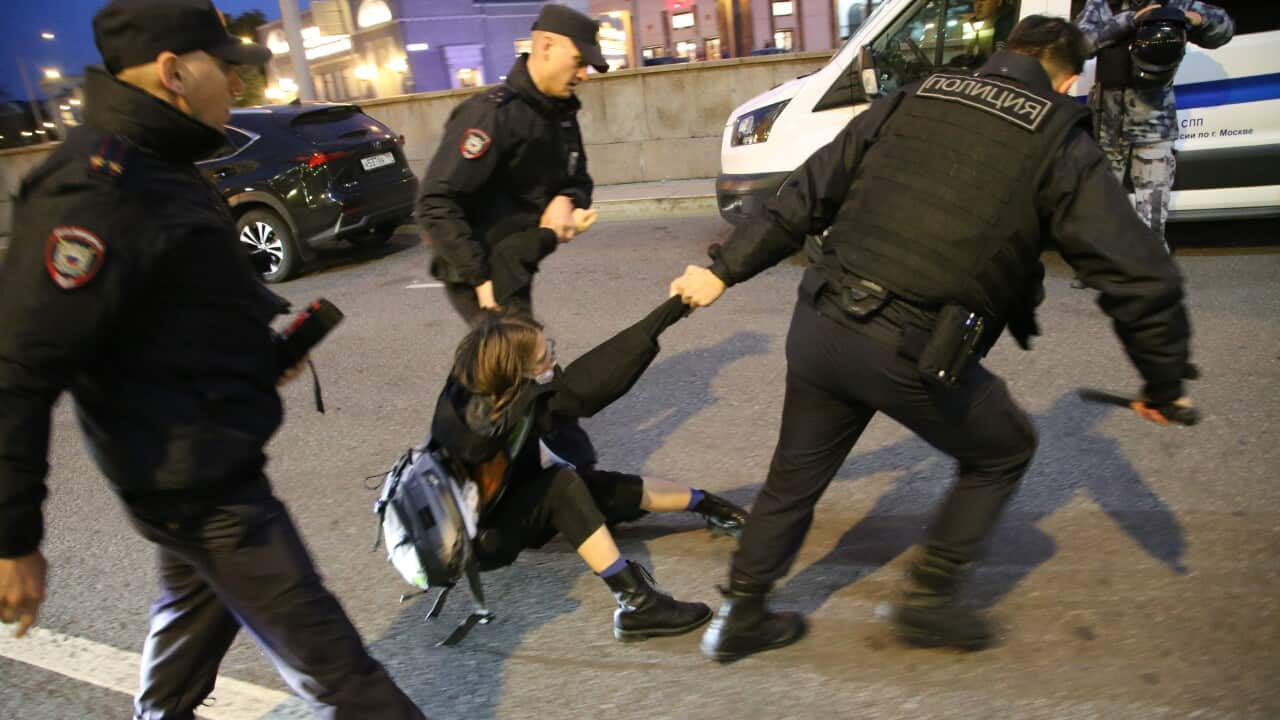Key Points
- The results of referendums in Russian-occupied areas of Ukraine are pointing towards support for annexation.
- Hastily arranged votes took place over five days in the eastern regions.
Russian-installed officials in four occupied regions of Ukraine have reported huge majorities of votes in favour of joining Russia.
Hastily arranged votes took place over five days in the eastern regions of Donetsk and Luhansk and in Zaporizhzhia and Kherson to the south, which together makes up about 15 per cent of Ukrainian territory.
Vote tallies from complete results on Tuesday in the four provinces ranged from 87 per cent to 99.2 per cent in favour of joining Russia, according to Russia-appointed officials.
The head of the upper house of the Russian parliament said the chamber might consider annexation on 4 October.
"The results are clear. Welcome home to Russia!," Dmitry Medvedev, a former president who serves as deputy chairman of Russia's Security Council and an ally of President Vladimir Putin, said on Telegram.
"Russia’s sham referenda, if accepted, will open a pandora’s box"
Within the occupied territories, Russian-installed officials took ballot boxes from house to house in what Ukraine and the West said was an illegitimate, coercive exercise to create a legal pretext for Russia to annex the four regions.
"This farce in the occupied territories cannot even be called an imitation of a referendum," Ukrainian President Volodymyr Zelenskyy said in a video address late on Tuesday.
The United States will introduce a resolution at the United Nations Security Council calling on member states not to recognise any change to Ukraine and obligating Russia to withdraw its troops, US envoy Linda Thomas-Greenfield said.
"Russia’s sham referenda, if accepted, will open a pandora’s box that we cannot close," she said at a council meeting.
Russia has the ability to veto a resolution in the Security Council, but Ms Thomas-Greenfield said that would prompt the United States to take the issue to the UN General Assembly.
"Any referenda held under these conditions, at the barrel of a gun, can never be remotely close to free or fair," Britain's Deputy UN Ambassador James Kariuki said.
Russia's ambassador to the United Nations, Vassily Nebenzia, told the meeting that the referendums were conducted transparently and in line with electoral norms.
"This process is going to continue if Kyiv does not recognise its mistakes and its strategic errors and doesn't start to be guided by the interests of its own people and not blindly carry out the will of those people who are playing them," he said.
Nuclear sabre-rattling
If Russia annexes the four Ukrainian regions, Mr Putin could portray any Ukrainian attempt to recapture them as an attack on Russia itself.
He said last week he was willing to use nuclear weapons to defend the "territorial integrity" of Russia, and Mr Medvedev issued a new nuclear warning on Tuesday to Ukraine and the West.
But Mykhailo Podolyak, an adviser to Mr Zelenskyy, told Reuters that Kyiv would not be swayed by nuclear threats or by the annexation votes and would press on with plans to retake all territory occupied by invading Russian forces.
Diplomats say the nuclear sabre rattling is an attempt by Russia to scare the West into reducing its support for Ukraine.
For the first time, Mr Medvedev predicted that the NATO military alliance would not directly enter the Ukraine war even if Russia struck Ukraine with nuclear weapons.
Mr Putin said on state television the votes were designed to protect people from what he has called the persecution of ethnic Russians and Russian speakers by Ukraine, something Kyiv denies.
"Saving people in all the territories where this referendum is being held is ... the focus of attention of our entire society and country," Mr Putin said.
Mr Podolyak said Ukrainians who had helped Russia organise the annexation referendums would face treason charges and at least five years in jail. Ukrainians who were forced to vote would not be punished.
Donetsk is top priority
None of the four regions is fully under Russia's control, and there has been fighting along the entire front line, with Ukrainian forces reporting more advances since they routed Russian troops in a fifth province, Kharkiv, this month.
Mr Zelenskyy said the Donetsk region in the east remained his country's - and Russia's - top strategic priority, with "particularly severe" fighting engulfing several towns.
The general staff of Ukraine's military said late on Tuesday that Russian forces had shelled seven towns in Donetsk. The military said 20 towns in the Zaporizhzhia region in south-central Ukraine and 35 towns and villages in the Kherson region in the south were also hit.














